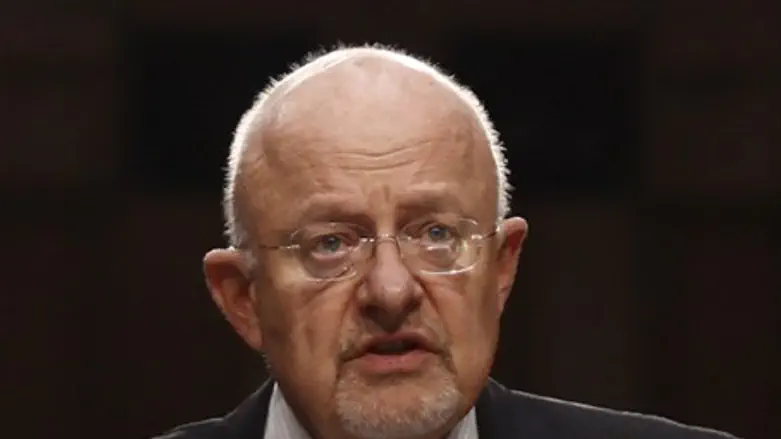
The Syrian regime has agreed to dismantle its arsenal of chemical agents but may now have the ability to produce biological weapons, the U.S. intelligence chief warned senators Wednesday, according to AFP.
“We judge that some elements of Syria’s biological warfare program might have advanced beyond the research and development stage and might be capable of limited agent production, based on the duration of its longstanding program,” James Clapper, director of national intelligence, said in a written statement presented to the Senate Intelligence Committee.
Clapper offered no further details but it was the first time officials had stated publicly that America’s spy agencies believed Syria had made significant strides in its biological weapons program.
British experts have already warned that there is a "clear and present danger" of Al-Qaeda gaining possession of the Assad regime's stockpile of biological weapons, claiming to have substantial evidence that Al Qaeda-linked groups may already have possession of toxic agents.
Clapper, according to AFP, added that Syria could potentially launch biological agents with conventional weapons.
“To the best of our knowledge, Syria has not successfully weaponized biological agents in an effective delivery system, but it possesses conventional weapon systems that could be modified for biological-agent delivery,” he said.
Clapper also said the civil war in Syria had become a “huge magnet” for Islamist extremists, including Al-Qaeda-linked groups.
The presence of jihadist rebels in the civil war in Syria has become a major concern for the West, which has reportedly been arming the more moderate rebel groups.
Islamist rebel factions such as Al-Nusra and the Islamic State of Iraq and the Levant (ISIS) have taken on the moderate rebels in addition to fighting Assad’s forces. They have carried out atrocities during the ongoing civil war, including publicly beheading those accused of collaborating with the Assad regime, and even executing members of rival rebel groups.
In recent days, the fighting between ISIS and other Syrian rebels has escalated, with hundreds having been killed in the fighting between rival groups
Meanwhile, an international operation to destroy Syria’s stockpile of deadly chemicals is currently underway, and is a joint Russian-U.S. plan that was endorsed by the UN Security Council in September.
The resolution was a last-minute measure to prevent an American strike on Syria in retaliation for the regime's alleged use of chemical weapons in an attack on a Damascus suburb in August that left hundreds dead.
War, bad weather, bureaucracy and technical issues delayed a December 31 deadline for the removal of the most deadly toxins from Syria.
Despite the delays, the first batch of chemical weapon materials was moved out of the country earlier this month, and a second shipment was removed earlier this week.
